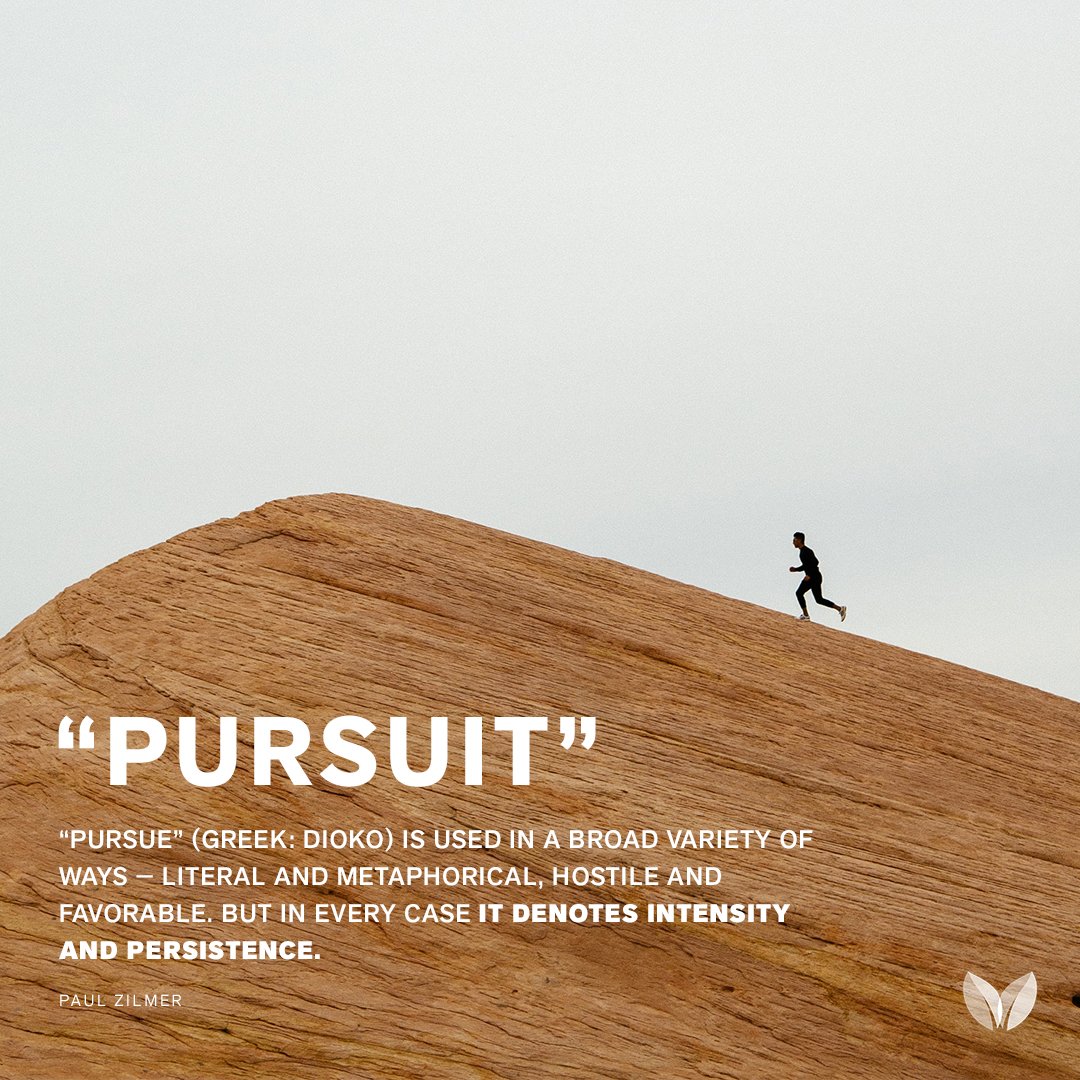Pursuit
In the middle of his discussion of the gifts of the Spirit, Paul drops in the familiar “love chapter”—1 Corinthians 13. It is a lovely, even lyrical, treatment of a beautiful subject. The ending is familiar to all: “And now abide faith, hope, love, these three; but the greatest of these is love.”
Actually, that’s not the ending. In fact it comes after the artificial chapter break, as Paul concludes the discussion of love with one more exhortation: “Pursue love.”
“Pursue” implies some significant effort. Some versions render it “follow after”, which doesn’t seem to do justice to the original Greek word dioko. This word is used in a broad variety of ways—literal and metaphorical, hostile and favorable. But in every case it denotes intensity and persistence. It’s the word most often used for persecution. It’s also the word Paul chooses for his “pressing on” toward the resurrection (Philippians 3:12 & 14). We are directed in other places to pursue righteousness, to pursue what is good, to pursue peace.
None of these conveys something that’s once-and-done, something mild, something superficial. Every usage conveys ongoing, intentional, focused effort.
So, in 1 Cor 14:1, what is Paul getting at, exhorting this kind of pursuit of love? We have no major difficulty with the idea of pressing on toward the resurrection being a long-lasting and strenuous effort. The same with righteousness. The same with peace too—we know how much continuing effort it takes to maintain peace with others. We don’t, however, immediately think of love as something in the same category.
But if we look back into chapter 13, Paul’s description of love includes things that must be ongoing, things that are hard for us, things that we often fail at. Love, as Paul defines it, might include warm affection—but if so he doesn’t mention it. What he talks about goes way, way beyond. Goes to something that takes concentrated, long-term pursuit, to have any chance of attaining.
Love (trying to pursue love),
Paul


